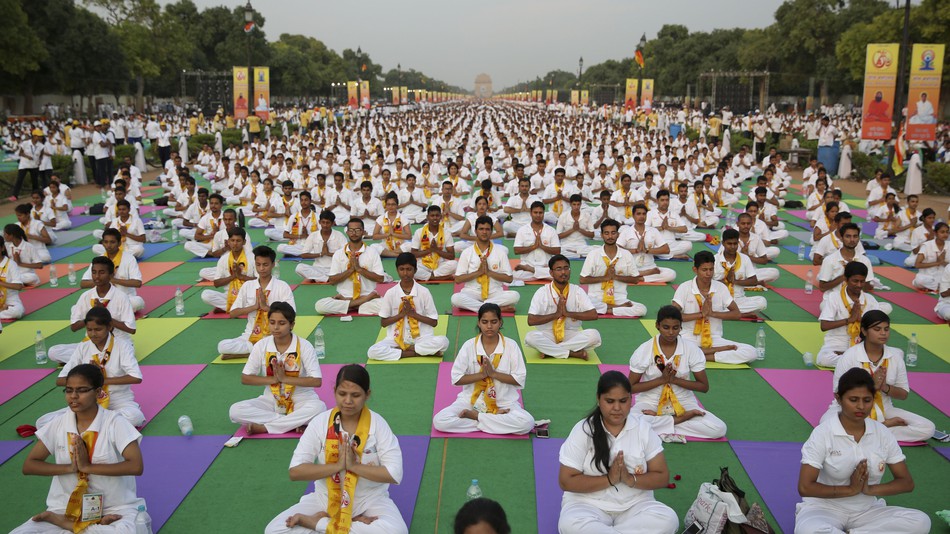Syro-Malabar Church says
yoga is incompatible with Christianity
04/07/2018, 05.10INDIA
 The
Church’s Doctrinal Commission released a report on ‘Yoga and Catholic
beliefs’. The practice is mandatory in schools. Hindu nationalists "try
to exploit yoga to achieve their political and sectarian goals." The Church
warns against equating “physical experiences stemming from yoga with
the workings of the Holy Spirit.”
The
Church’s Doctrinal Commission released a report on ‘Yoga and Catholic
beliefs’. The practice is mandatory in schools. Hindu nationalists "try
to exploit yoga to achieve their political and sectarian goals." The Church
warns against equating “physical experiences stemming from yoga with
the workings of the Holy Spirit.”
Mananthavady (AsiaNews/Agencies) – The practice of yoga is incompatible
with Christian doctrine, this according to a report issued by the Syro-Malabar
Church, one of the three rites of the Catholic Bishops' Conference of India
(CBCI).
Published in the latest bulletin of the eparchy of Mananthavady, the
paper by the Syro-Malabar Doctrinal Commission is titled ‘Yoga and Catholic
beliefs’ (Yogayum Katholika Vishvasavum).
It notes that yoga and Christianity cannot go together and that Hindu
nationalist groups (Sangh Parivar) "try to exploit yoga to achieve their
political and sectarian goals." It calls for a “re-reading of yoga”
since the “government has moved towards making yoga compulsory in schools
and present it as an inseparable part of Indian culture.” This
is not the first time that Syro-Malabar
Bishops have spoken out on this matter. Last year they stated that
"yoga is not a means to reach contact with the divine, although it may
contribute to physical and mental health."
Yoga is a set of physical, mental, and spiritual practices that originated
in India and spread around the world. It combines physical and breathing
exercises. In Hinduism, it is also a spiritual journey to experience contact
with the divine.
In Indian schools, yoga is compulsory and every year, on International
Day Yoga (21 June), schools focus on activities and events dedicated to
yoga.
Indian activists
and intellectuals have long said that the obligation to observe the
event, forcing students to sing sacred Hindu sonnets and mantras, limits
the freedom of religion of minorities and represents a lack of "sensitivity"
towards Christian and Muslim students.
“In yoga there is no place for God, the creator and sustainer even
when considering the spiritual experiences of human beings,” the Commission
chaired by Mgr Joseph Kallarangatt noted. “Although yoga may have
originated and grown out of India’s secular traditions, it later spread
under the influence of the Hindu religion under Brahmanical dominance.”
For this reason, the Commission warns “of the danger of physical gestures
and exercises becoming idolatrous in themselves.“ Too easily, one can
equate “physical experiences stemming from yoga with the workings of
the Holy Spirit.”
Go to the previous page
 The
Church’s Doctrinal Commission released a report on ‘Yoga and Catholic
beliefs’. The practice is mandatory in schools. Hindu nationalists "try
to exploit yoga to achieve their political and sectarian goals." The Church
warns against equating “physical experiences stemming from yoga with
the workings of the Holy Spirit.”
The
Church’s Doctrinal Commission released a report on ‘Yoga and Catholic
beliefs’. The practice is mandatory in schools. Hindu nationalists "try
to exploit yoga to achieve their political and sectarian goals." The Church
warns against equating “physical experiences stemming from yoga with
the workings of the Holy Spirit.”